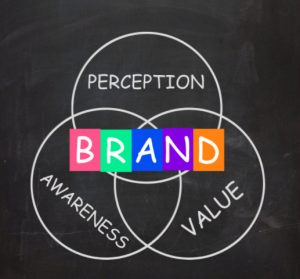improve your hiring by addressing these two areas 

13/12/2021
By Chris Andrews – Director and Head of Advisory
You are not alone…
Stone hires across a very broad range of industries and at all levels of seniority. As a result, we are lucky enough to witness differing approaches to hiring from companies of all sizes and industries across Australia.
Now, as 2021 draws to a close, I wanted to share several occurrences that we regularly observe, that could harm your company’s growth if unaddressed.
1. A focus on functional skills at the expense of other qualities
Sometimes companies need to ‘buy in’ skills at short notice – for example hiring a contractor – a process that makes sense on a short-term basis. In these situations, the focus is primarily on functional skills. As we used to say when hiring temps – ‘can they do it, can they get there?’
When hiring for long term employees, however, functional skills should form part of a broader candidate profile comprising life experience, values, motivators, personality traits and soft skills. This is where we have seen an erosion in best practice. Talk of ‘the great resignation’ and consequent skill shortages has notched up the sense of panic, pushing up salaries and lowering the threshold in the other aspects of screening outside functional skills.

Our old mantra for temps is increasingly being applied to permanent roles, and it occurs mainly in the early stages of a process. It has the knock-on effect that whoever is next in the process is meeting applicants from a very diminished pool and therefore has limited options.
As the functionally strong applicants move through the interview process, their drivers and traits come under more scrutiny (senior executives generally place a higher value on these) and they too fall by the wayside. As a result, there can be delays in the process as it seems there is nobody in the market who meets the brief.
The negative result can be culture challenges down the track. The problem with culture change is that it happens slowly and can be hidden by short term success. However, it is very hard to reverse, and when the cracks appear, the damage is often done.
2. Failure to promote employer brand proactively and continuously

In any market your employer brand needs to stand out. With the current skills shortage, it is crucial. Yet many employers still hire using a variation of the following stages;
1) Advertise a role one month before you need it filled, highlighting the essential skills required and the generic benefits in return (competitive salary, career progression)
2) Screen out those who don’t 100% match the functional brief on paper
3) Interview in person, testing ‘culture fit’
4) Take the top 2 through to final interview
5) Decide on the best applicant
6) More tests and references
7) Now start selling hard to that applicant!
This approach is fairly outdated now as companies see the need to appeal at a purpose and value level earlier in the process, as well as differentiating themselves through the hiring experience.
At a basic level, this means creating a pleasant hiring experience, ensuring every interviewer is an ambassador for the brand, and takes the time to empathise and engage with the applicants as individuals.
At the more progressive level it means embedding hiring into your workforce plan which in turns supports your growth goals. Such an approach would look more like this:
1) Isolate the skills and traits we need in key roles to meet the company growth goals
2) Profile groups in the workforce with those traits and skills
3) Initiate a campaign to engage those people with our employer brand on a continuous basis
4) Advise this community when we are looking to hire and invite them to see if their purpose aligns with our journey
Interested in learning how we can help find you great talent and improve your hiring process? Don’t wait until the New Year! Call us on 0430 160 709 to get started.
BACK
